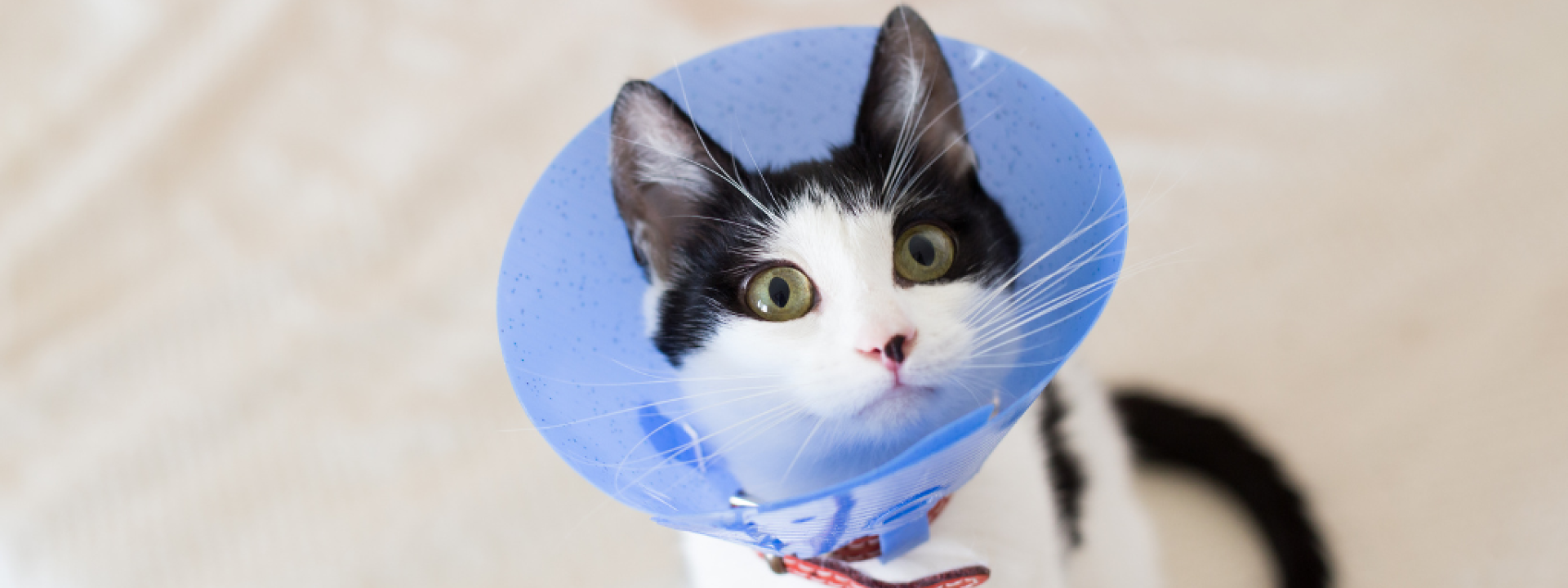Spaying and neutering is an essential surgical procedure to avoid unwanted pregnancy and overpopulation if you don't intend to breed your cat. It also offers numerous health benefits to improve your cat’s quality of life and longevity. If you’ve decided not to breed and understand that a spay or neuter is in your cat’s near future, you might have been tempted to visit the web to answer your many questions. At Veterinary Medical Center, we work extremely hard to bring you the accurate information you need. To avoid the misleading information you can get from “Dr. Google”, we’ve taken the FAQs about cat spaying and neutering and answered them as thoroughly and accurately as possible to ensure you have the facts.
If you’re looking for a highly trained veterinarian in Union City, CA, we’d love to see your cat for either procedure, so please call us at (510) 441-8500.
What is the difference between cat spaying and neutering?
Veterinarians use the term spaying when removing the reproductive organs from a female cat and neutering when removing the reproductive organs from a male cat. Spaying involves the removal of the ovaries, while neutering removes a cat’s testicles — both to prevent breeding.
How does spaying or neutering impact the health and wellbeing of your cat?
Spaying or neutering has a significant impact on the health and wellbeing of your cat, from preventing pregnancy to positive behavioral changes. It’s a critical part of the AVMA’s guidelines for responsible pet ownership.
Spaying or neutering a cat impacts their well-being in the following ways:
- Prevents unwanted pregnancy
- Prevents diseases associated with mating
- Helps to avoid reproductive-related cancers later in life
- Helps to reduce the likelihood of injury and catfights as a result of wandering in search of a mate
- Eliminates urine marking behaviors in male cats
How soon should you bring your cat in to see a veterinarian to get them spayed or neutered?
At Veterinary Medical Center, we recommend waiting until your cat is six months of age to get spayed or neutered, although the AAFP says the ideal age is five months. At this age, they will handle the anesthesia much better, and they’re still young enough that it’s before males develop secondary sex characteristics and females have their first heat. Spaying before a first heat helps prevent certain diseases later in life. Talk to your veterinarian about the ideal age to spay or neuter your cat.
What are the medical benefits of spaying or neutering your cat?
While the most significant medical benefit of spaying or neutering your cat is avoiding unwanted pregnancy, there are several other health and behavioral advantages.
Benefits of spaying or neutering your cat include:
- Preventing unwanted pregnancy or unwanted fathering of kittens
- Preventing reproductive-related cancers, including mammary and ovarian cancers in female cats and testicular cancer in male cats
- Avoiding infections in the reproductive tract of female cats
- Reducing wandering in male cats, which can lead to them becoming lost, injured, or engaged in catfights

What are some possible conditions that can be helped or prevented by spaying or neutering your cat?
Whenever a female cat comes into heat, it's almost like a beacon goes up, and every intact male cat within 10 miles manages to find its way to that female cat. Preventing unwanted reproduction, especially in females, is critical. For male cats, roaming and urine marking behaviors are significantly worse when they are intact, and they have more issues getting along with other pets in the household. These are all things influenced by certain hormones in male cats, which are eliminated with neutering.
Will it affect a cat's behavior?
Spaying or neutering can sometimes make your cat more mellow and help with aggressive tendencies if that is a problem. Males will no longer have the desire to mark your house, and they're not going to fight as much. The females’ desire to leave the house and breed is also eliminated by spaying.
How should you care for your cat before and after spaying or neutering surgery?
Before spaying or neutering, the most significant consideration is to ensure they’re heading to your veterinarian for the procedure with an empty stomach, as anethesia can make them nauseous. This includes avoiding both food and water after 10:00 pm the night before. If you have an outdoor-only cat, keep them inside the day before surgery. The procedures are typically done on an outpatient basis, so you’ll bring them to the hospital in the morning, and they will go home with you later that day.
Following the surgery, keep your cat quiet in their own space where they won’t be bothered by other pets or young children. Keep an eye on the tiny surgical incision post-surgery, as you want to make sure it’s healing properly and not being agitated by your cat. The stitches will be underneath the skin, making things more comfortable for your cat, but you still need to keep a close eye on how it's healing during the first two weeks. Generally, cats bounce back from the anesthesia pretty quickly, although they might be tired for a day or two.
If you have further questions about cat spaying and neutering, reach out to your veterinarian. If you live in or near Union City, CA, we’d love to help your cat through the procedure, so please don’t hesitate to call us at (510) 441-8500 or email us at [email protected].

